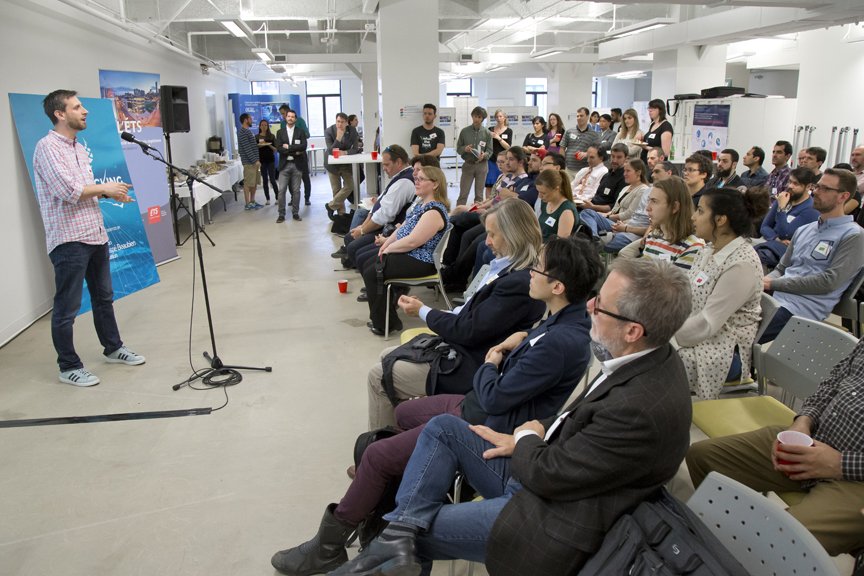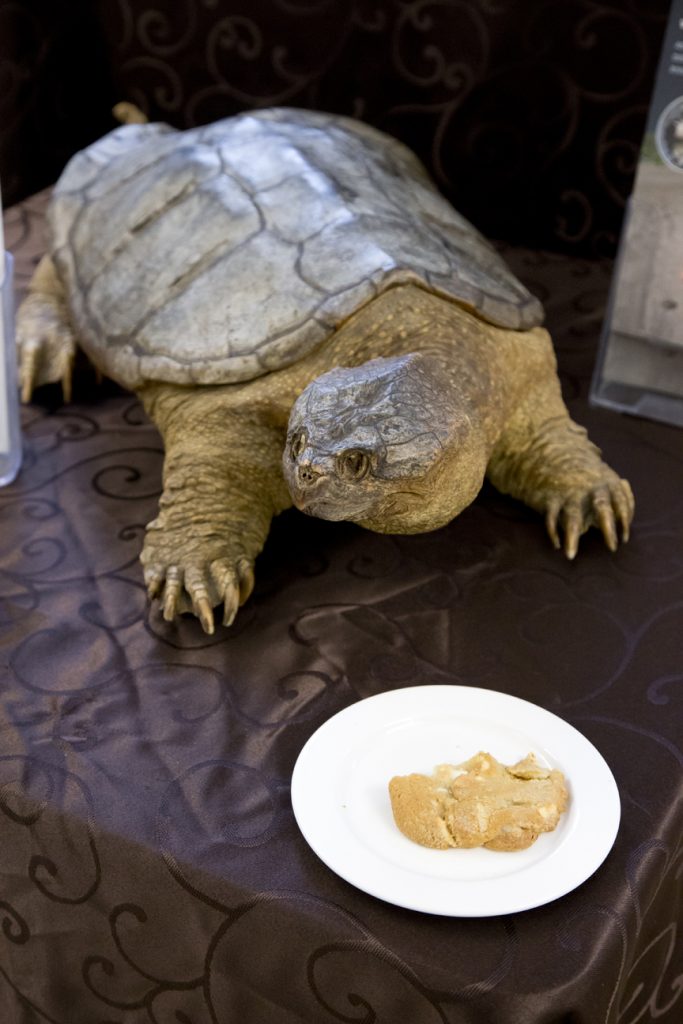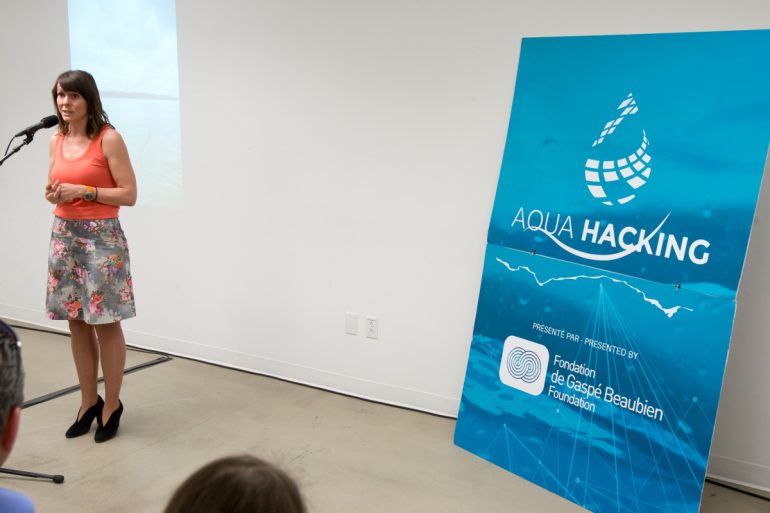Water is the most precious resource we have. Here in Canada, we might like to think that we have a limitless supply, but the reality is that many of our water systems are heavily polluted, and in dire need of monitoring and protection in the interest of public safety.
Tackling these issues was precisely the goal of AquaHacking, a coding competition run by the de Gaspé Beaubien Foundation, that culminated last Friday. Now in its second year, AquaHacking brought together 27 teams to create functional web and mobile solutions to preserve a large body of water; the focus this year was on the St. Lawrence River. Teams could choose to focus on climate change adaptation, spills and overflows, access to the St. Lawrence River, and water conservation.
“It’s not easy to predict levels of contamination, and people are scared to go into the St. Lawrence River. But they shouldn’t be scared, they should be better informed.”
With a total of $50,000 in prize money and in-kind prizes that include incubation at Centech (ETS) or District 3 (Concordia) and access to a range of products in the IBM Ecosystem, the main goal of this competition is to not only encourage work on preserving water systems, but to form partnerships between the teams, local non-profits, and environmental agencies. In fact, half of the prize money for the winning teams is disbursed as part of a contract with their first client — an incentive for municipalities and agencies to help get these technologies into production.

The October 7 finals saw five teams competing for the top prize. These teams had products that ranged from using drones to capture data and take water samples for scientific analysis (Dronolab) to an app that would provide recreational fishers with information about fish populations, share data with other fishers, and show access points and maps of waterways (eFish).
The winning team, Info-Baignade Montréal, created an early warning system that tracks the risk of microbiological contamination in order to predict safety for swimmers. This interdisciplinary team made up of water experts, designers, programmers and developers hopes to partner with the City of Montreal in order to get better informations to swimmers, and encourage more people into the St. Lawrence River.
For Émile Sylvestre, PhD student at Polytechnique Montreal and the originator of Info-Baignade Montreal, the win is great news.

“The main goal of AquaHacking was to develop our technology so that it can be applied to the whole St. Lawrence River,” Sylvestre said. “We’d like to have our first contract with Montreal to develop our model and improve the concept so that we can apply to other cities and develop big areas of the St. Lawrence River for swimming. Right now, it’s not easy to predict the levels of contamination, and people are scared to go into the water. But they shouldn’t be scared, they should be better informed.”
The Foundation was pleased with the results of the competition and are in conversation with a number of foundations in the US about the possibility of focusing the 2017 challenge on Lake Erie.
“Water preservation is important today, but it is also important for the future of the planet,” said Sandro Di Cori, director of operations at the de Gaspé Beaubien Foundation. “By adding this hackathon component, it really makes it compelling for a younger generation. It’s something we’re going to be sticking with for a really long time. ”


